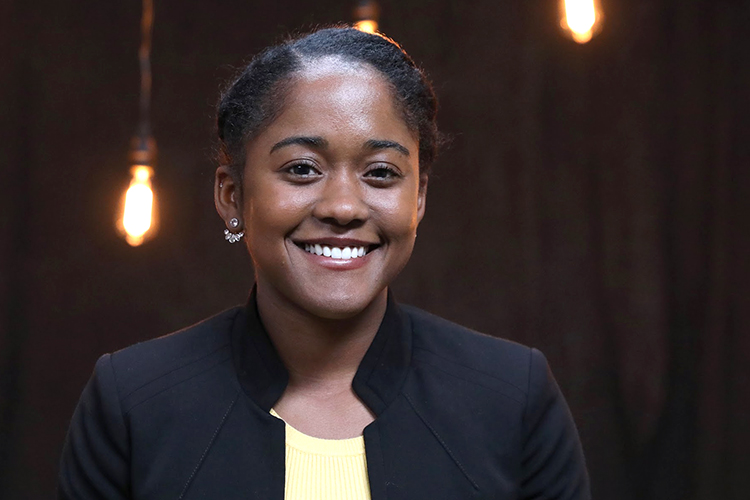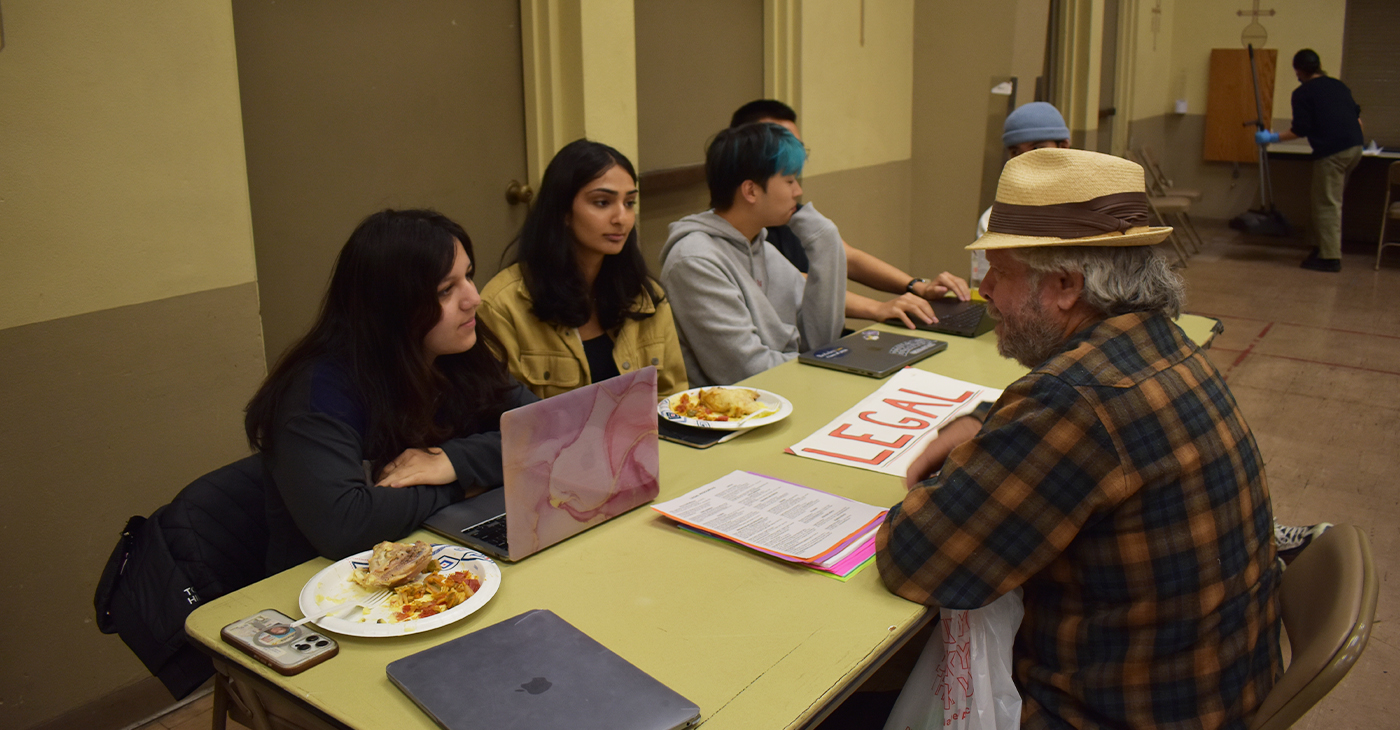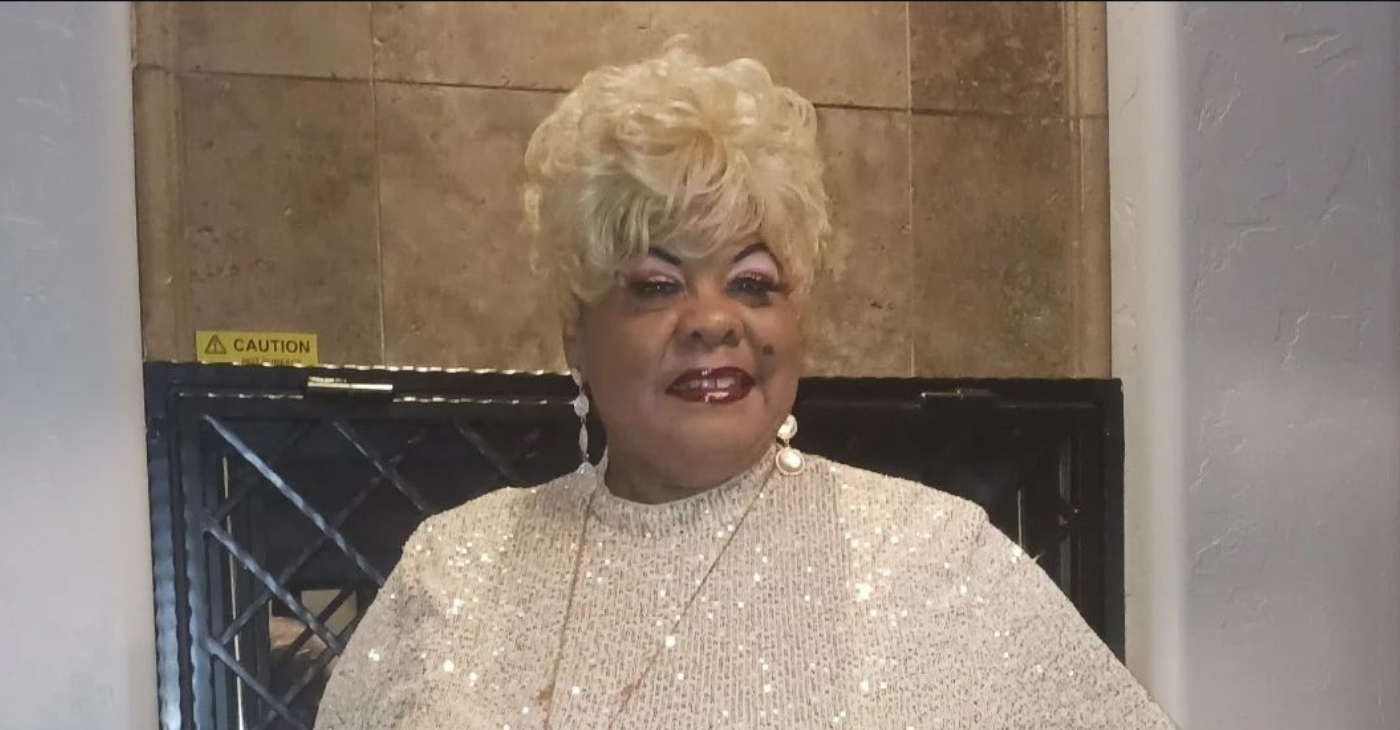Berkeley
Graduating MBA Prepares Young Scholars to Have Agency Over Their Lives

“If you had asked me five years ago if I’d be walking out of Berkeley to start a new elementary school in Hayward, California, I would have politely smiled and shook my head. I had no interest in going to graduate school, never mind business school.
At the time, I was an industrial engineer at Disney, and every day, I created magic. My favorite project was with Disney Cruise Line, supporting the largest dry dock in cruise line history, the Disney Wonder. In Cadiz, Spain, I joined thousands of people from all over the world renovating the ship. We switched out ceilings, floors, stages and walls to convert to new themes like Tiana’s Place (a restaurant themed to Disney’s the Princess and the Frog), my team handling the scheduling.
My work was chaotic and intense, and I couldn’t have been happier. Decades could have passed quickly and I might have stayed on at the company, if not for one question nagging me: Were there other jobs, other opportunities, that I could equally love and find purpose in?
That’s what brought me to Berkeley to earn my MBA, with a focus on social impact.
Growing up in Flint, Michigan, I was steeped in a community that cared deeply about its children, but lacked adequate resources. My mom, a military reservist, earned her bachelor’s degree in business and worked seven days weeks — sometimes only to come home to eviction notices on our apartment door. She struggled knowing that the schools were not providing a great education, and she needed a better job. So, we moved to Southfield, Michigan, where we found both.
A different zip code meant a better school and more opportunities. I had access to the Academic Games, where I could “get my nerd on,” competing to outwit my opponents with mathematical equations. My mom encouraged me to join the band and, thanks to a small black clarinet and a brilliant teacher named Mr. Scott, I learned to train my fingers and mind to the sounds of music. Our lives changed.
Years later, at Disney, I recognized that I had gained everything my mother could have wished for when she moved my brother and me to Southfield: responsibility, independence, mobility and financial security. But it wasn’t enough. While I enjoyed these privileges, my family and friends back in Flint, who were just as talented and intelligent, lacked the security that I felt. They were let down by their zip codes and school districts.
So, when I was considering my career path at Berkeley Haas, I thought of all the teachers and mentors I had and how my educational experience had changed me. Through a social impact speaker series at Haas, I heard someone talk about their work in education and got curious. How could I use my skills in operations in this field?
I turned to my Consortium mentor and friend, Om Chitale, who helped me find an internship as an Education Pioneers Fellow at ACE Charter School Network. Because of him, I started thinking about how I could work in education and, as a result, I built Cheetah Tank, a Shark Tank-style pitch competition for elementary school students in Oakland. Co-created with the incredible Andrew Davis, the program focuses on idea generation stemming from the simple question, ‘What problem are you trying to solve?’ This project, and an introduction from Om, led me to my full-time position at Hayward Collegiate Charter School.
As head of operations, I’m working with our determined founder, Neena Goswamy, to open a new tuition-free charter school to serve the students of South Hayward and provide them with an opportunity for an excellent education. I know that opening this school will not be easy. I’ve been working on it part-time since January, while finishing my MBA program. Each time we speak with families, we promise that we will prepare their scholars to have agency over their lives. We are being given an incredible responsibility to make a positive difference, striving to ensure that our students leave us as hardworking, creative and kind individuals. Not only that, we want them to know where they come from — and that they represent and belong to a community that supports them.
I believe that who we are surrounded by affects what we think is possible. Whether it be in the form of blood relationships, teachers, my amazing partner and his relatives, my peeps at Disney or the talented individuals inside and outside of Haas who I call my friends, my family has held me up and shown me that anything is possible for me. As I leave Berkeley this month, I want to do the same for my young students.”
Activism
A Student-Run Group Provides Critical Support Services to Underserved Residents
Those visiting The Suitcase Clinic can get legal advice, sign up for food assistance, receive housing resources, get medical help, or enjoy a hot, fresh meal. They can also get haircuts and foot washes from the student volunteers. Nilo Golchini, executive director of the clinic, said one of the goals for most of the students working there is helping bridge the gap of trust that exists between many unhoused people and the healthcare and social welfare systems.

Part One
By Magaly Muñoz
Every Tuesday evening, the dining hall of First Presbyterian Church fills up with dozens of people eating, laughing and moving from table to table, receiving much-needed services from UC Berkeley students – just a few blocks away from the university’s campus.
Individuals seeking support services can be found in this multi-stationed room on the south end of the church talking to law students, student case managers, or receiving medical attention in a corner by healthcare professionals.
This weekly event is hosted by Cal students through a volunteer-run program called The Suitcase Clinic.
The clinic, founded in 1989, was intended to offer free resources to underserved communities in Berkeley and surrounding cities. The majority of the clinic’s clientele are unhoused or low-income people looking for extra support.
Those visiting the clinic can get legal advice, sign up for food assistance, receive housing resources, get medical help, or enjoy a hot, fresh meal. They can also get haircuts and foot washes from the student volunteers.
Nilo Golchini, executive director of the clinic, said one of the goals for most of the students working there is helping bridge the gap of trust that exists between many unhoused people and the healthcare and social welfare systems.
During their tenure in the program, many of the students say they become strong advocates for homelessness rights.

Visitors of the Suitcase Clinic can receive haircuts and foot washing by student volunteers every Tuesday evening. Photo by Magaly Muñoz.
“We’re also standing in solidarity with them. So, it’s not saying, ‘I’m going to help you, but I’m also going to stand with you,’” Golchini said.
Student volunteers get extensive training prior to working directly with clients. Those interested have to take a semester-long class to become versed in areas such as outreach, intersectionality, how to interact with unhoused people, how to sign people up for social services. and more.
Volunteers then get to pick from three different clinics: General, Women’s, or Youth and LGBTQ+.
The General Clinic is the most popular among visiting residents, while Women’s and Youth/LQBTQ+ have more specialized services for attendees.
The Women’s Clinic has many of the similar services to General, but also includes nail painting, childcare, and massages.
The Youth and LGBTQ+ Clinic offers a safe space for young people navigating living on the streets, with services that include housing referrals, wellness and recreation classes and employment resources.
Golchini explained that it’s important for them to keep these clinics separate because the different demographics experience poverty and homelessness differently than those who visit the General Clinic.

Suitcase Clinic student workers posing for a photo with a frequent clinic attendee. The Clinic is open to Berkeley unhoused and low-income residents who need medical or legal service, or a hot meal. Photo by Magaly Muñoz.
“We’re able to provide spaces where people can come in and feel safe and not feel like they’re constantly worried that something’s going to happen to them,” she said.
An outreach team also visits encampments every other Saturday in the Berkeley area to provide hygiene kits and encourage people to visit the in-person clinic, if possible.
However, Golchini said engagement has been low for some time now due to a recent decision by the U.S. Supreme Court that allows cities to ban and cite people for sleeping on the streets.
She said a lot of their clientele got displaced to other cities over time, making it difficult to stay in contact with the services the Clinic was providing for them.
But that hasn’t slowed down the students at the Clinic, if anything, it has pushed them to do more for the community they serve.
Arts and Culture
Promise Marks Performs Songs of Etta James in One-Woman Show, “A Sunday Kind of Love” at the Black Repertory Theater in Berkeley
“The (show) is a fictional story about a character named Etta, aka Lady Peaches,” said Marks. “She falls in love with Johnny Rhythm, leader of the Rhythm Players Band and headliners of Madam G’s Glitta Lounge.” Marks channeled the essence of Etta James, singing favorites such as “Sugar on the Floor” and “At Last.”

Special to the Post
It was “A Sunday Kind of Love” at the Black Repertory Group Theater in Berkeley on Saturday night, Dec. 7. The one-woman musical based on the music of Etta James featured the multi-talented singer Promise Marks
Marks, who wrote and directed the musical, also owns PM Productions.
“The (show) is a fictional story about a character named Etta, aka Lady Peaches,” said Marks. “She falls in love with Johnny Rhythm, leader of the Rhythm Players Band and headliners of Madam G’s Glitta Lounge.”
Marks channeled the essence of Etta James, singing favorites such as “Sugar on the Floor” and “At Last.”
In between her soulful songs, Marks narrated impactful moments of the love story and journey of blues and forgiveness.
Marks sultry voice carried the audience back to an era that echoed with the power of Black music and a time of great change.
Marks said James shared love for the Black community by singing at gatherings during the Civil Rights Movement uplifting the people.
“She spoke to the movement, spoke to the people, and let her music speak for itself,” Marks said.
Backing the musical’s monologues, images and videos of Etta James are projected for the audience to view. While the production is fictional, Marks infused script with the unfairness and heartbreak James experienced while performing.
Marks performed gospel artist Donnie McClurkin’s “We Fall Down” as she narrated acts of reconciliation and forgiveness among the characters at Johnny Rhythm’s deathbed.
Marks, who regularly sings for the Miss America Pageant, was asked to perform as Etta James last year. “(At the event) a lady yelled out to me: ‘You’re Etta James!’ And then the audience went crazy. I said to myself, ‘I may have something here,’” she said.
Within 12 months, Marks created the musical production, which featured a dozen songs honoring “the great legacy of Etta James,” she said.
Marks says she was saddened to see how Etta James was often judged by the struggles in her life and wanted to offer attendees a more layered view.
“Etta’s life was so big. I want people to know that she was more than her drug addiction,” said Marks. “We can’t make that her legacy. Her catalog is too amazing. You can’t just be that and have the catalog that she (created). I don’t want the addiction to be the focus: I want her music, her element, her sassiness, and what she brought to be the focus – her woman-ness, that she was strong, and I wanted to honor that.”
Set Designer Nora Burnette says she created the set segments to mirror James’ life story. A set designer for BRG since 2016, she explained that her process of researching the scenario and the character serve as her inspiration for her design.
“I try to design a set as close to real life as possible so that the actress can deliver the performance sincerely,” said Burnette. “By creating the right setting, it helps the actors release the true essence of a character.”
The set brought the story to life and absolutely floored Marks. “Once Promise (Marks) saw the actual set, she understood my vision: ‘Wow, you get me. You get it,'” Marks told the designer.
Born Jamesetta Hawkins, Etta James, began her career in 1954 and gained fame with hits such “At Last” and “I’d Rather Go Blind.” She faced a number of personal problems, before making a musical comeback in the late 1980s with the album “Seven Year Itch.”
Co-producer and BRG Development Director, Sean Vaughn Scott, works with Overseer Production. According to producer Pamela Spikes, “Marks talent truly does Etta’s life story justice.”
Pam Jacobs of Hercules, a friend of Marks’ mom, Jackie Smith, said, Marks “was fabulous and sang all of those songs flawlessly.”
“I’m so proud of my daughter,” said Smith.
Marks, who has served as an instructor for BRG, will return on Feb. 21- 23 for an encore run of the musical.
“It’s an honor to be a part of the BRG (Black Repertory Group) family and continue our executive director Dr. Mona Vaughn Scott’s vision for the Black Repertory Group theater,” said Marks.
The Black Repertory Group Theatre is located at 3201 Adeline St., Berkeley, CA 94703. For information, visit: BlackRepertoryGroup.com
Activism
BWOPA Honors Black Leadership and Legacy at 2024 Ella Hill Hutch Awards Dinner
On Dec. 5, BWOPA held its Annual Ella Hill Hutch Awards Ceremony, at the Fairmont Claremont Hotel in the Oakland/Berkeley Hills. At the event, the group comprised of Black women from various professional backgrounds, honored distinguished local and state leaders whose contributions have shaped civic engagement and advanced critical social issues impacting Black communities.

By Oakland Post Staff
Black Women Organized for Political Action (BWOPA) is a statewide non-profit advocacy and membership organization committed to solving problems affecting Black Californians.
On Dec. 5, BWOPA held its Annual Ella Hill Hutch Awards Ceremony, at the Fairmont Claremont Hotel in the Oakland/Berkeley Hills.
At the event, the group comprised of Black women from various professional backgrounds, honored distinguished local and state leaders whose contributions have shaped civic engagement and advanced critical social issues impacting Black communities.
The evening was hosted by Dr. Shawna Charles, founder of The Charles Communications Group (CCG) headquartered in Los Angeles. Charles served as mistress of ceremonies.
With a track record of elevating voices and empowering communities, Charles’ leadership and insight brought a certain dynamism to the celebration.
“Each year, this event not only celebrates the enduring legacy of our beloved BWOPA founding member, Ella Hill Hutch, but also reaffirms and amplifies our unwavering commitment to building and sustaining Black political power across California,” said Dezie Woods-Jones, BWOPA founding member and State president.
“Ella Hill Hutch’s trailblazing leadership continues to inspire us as we forge ahead, empowering Black women to lead, advocate, and shape a more equitable future for all,” added Woods-Jones.
This year’s event introduced the DWJ Rising Star Award, honoring young leaders like Solano County Board Supervisors-elect Cassandra James, Danielle Motley-Lewis, Naomi Waters and newly elected State Assemblymember elect Rhodesia Ransom (D-Stockton).
According to organizers, the awardees all exemplify “the next generation of changemakers.”
Other awardees included:
- Lifetime Achievement Awardees: Congresswoman Barbara Lee (D-CA-12) and Alameda County Supervisor Keith Carson
- Man of the Year: Kenneth Maxey, CEO of the Greater SF Bay Area Urban League
- President’s Corporate Award: Yvette Radford, Kaiser Permanente
- In the Spirit of Ella State and Chapter Awards: Dr. Carolyn Greene, Dr. Marcella K. Smith, Dr. Carolyn Drake, Tinisch Hollins, Jackie Jones, Gloria Burgess Johnson, Tamika L’Ecluse, Ellen Nash, Betty Reid Soskin, and Ay’Anna Moody.
BWOPA also celebrated local champions across its chapters, including leaders in voter education, healthcare, criminal justice reform, and community advocacy.
In a statement, BWOPA said, “Honoring Ella Hill Hutch’s legacy, BWOPA recognizes her pioneering efforts as the first Black woman elected to the San Francisco Board of Supervisors. Her tireless work amplifying underrepresented voices continues to inspire BWOPA’s mission to build Black political power across California.”
“We extend our heartfelt thanks to our members, partners and allies who believe in BWOPA’s vision to invest in building power for Black women’s leadership,” said LaNiece Jones, BWOPA State executive director. “Your support ensures that Black women have a voice at decision-making tables locally, regionally, statewide, and nationally, advancing diversity and equity in leadership spaces.”
-

 Activism4 weeks ago
Activism4 weeks agoOakland Post: Week of November 20 – 26, 2024
-

 Activism4 weeks ago
Activism4 weeks agoAn Inside Look into How San Francisco Analyzes Homeless Encampments
-

 California Black Media3 weeks ago
California Black Media3 weeks agoCalifornia to Offer $43.7 Million in Federal Grants to Combat Hate Crimes
-

 Black History3 weeks ago
Black History3 weeks agoEmeline King: A Trailblazer in the Automotive Industry
-

 California Black Media3 weeks ago
California Black Media3 weeks agoCalifornia Department of Aging Offers Free Resources for Family Caregivers in November
-

 California Black Media3 weeks ago
California Black Media3 weeks agoGov. Newsom Goes to Washington to Advocate for California Priorities
-

 Activism3 weeks ago
Activism3 weeks agoOCCUR Hosts “Faith Forward” Conference in Oakland
-

 #NNPA BlackPress4 weeks ago
#NNPA BlackPress4 weeks agoPRESS ROOM: Clyburn, Pressley, Scanlon, Colleagues Urge Biden to Use Clemency Power to Address Mass Incarceration Before Leaving Office













































